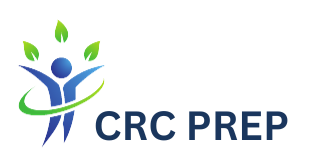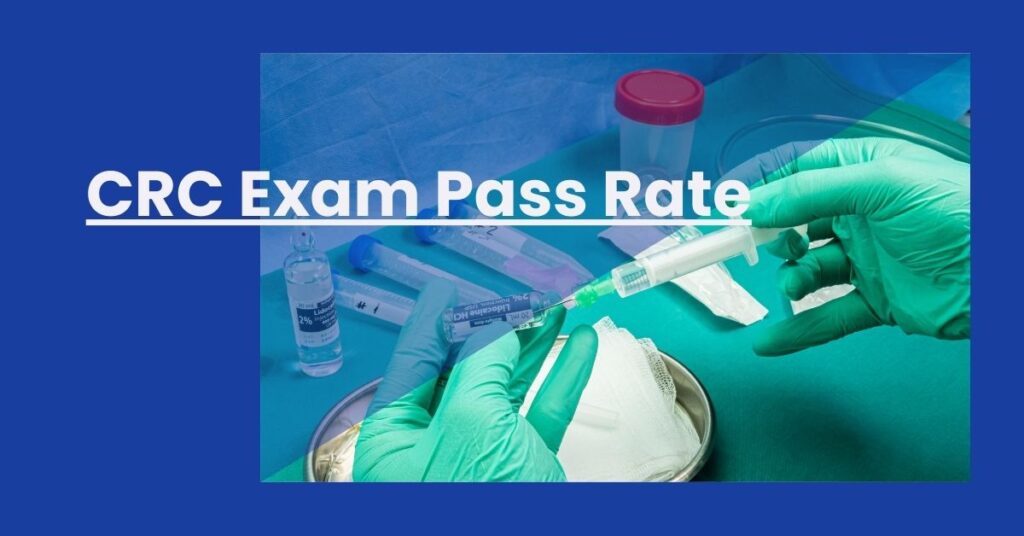The pass rate for the CRC Exam, the benchmark for Certified Rehabilitation Counselors, typically fluctuates around 67% for first-time candidates. If you’re eyeing success on this pivotal exam, understanding its pass rates can be crucial.
In this article, we uncover:
- Historical pass rates and what they signify for aspiring counselors.
- Preparation strategies to boost your chances of passing.
- How to interpret your results and use them effectively.
Empower your career in rehabilitation counseling with insights right here.
- Introduction to the CRC Exam
- What Does the CRC Exam Entail?
- Historical Overview of CRC Exam Pass Rates
- Factors Influencing CRC Exam Success
- Impact of Pass Rates on the Rehabilitation Counseling Field
- Importance of Accredited CRC Exam Preparation Programs
- Strategies for Improving CRC Exam Pass Rates
- How to Interpret and Use CRC Exam Results
- Conclusion: Future Outlook and Continuous Learning
Introduction to the CRC Exam
If you’re pursuing a career in rehabilitation counseling, achieving certification as a Certified Rehabilitation Counselor (CRC) is likely on your professional roadmap. The CRC exam is a critical stepping stone towards demonstrating your expertise in this field. This comprehensive test is the culmination of your education and practical training, and passing it speaks volumes about your commitment to providing the highest quality services to individuals with disabilities.
The CRC certification process validates your knowledge and skills, setting a nationwide standard for professionals in rehabilitation counseling. It’s a testament to your ability to effectively partner with clients to achieve their personal, career, and independent living goals. The exam assesses your grasp of crucial concepts and practices that underpin this unique and rewarding field.
What Does the CRC Exam Entail?
Embarking on the CRC exam is a formidable but manageable challenge. This pivotal test is crafted to reflect the real-world complexities you will encounter in your role as a rehabilitation counselor. Here’s what you need to know about what lies ahead:
- Format: The CRC exam is conducted over 3 ½ hours.
- Content: It covers an array of topics across twelve knowledge domains central to rehabilitation counseling.
- Structure: The exam is strategically divided to touch on all facets of your education and training.
Navigating through these domains requires more than just academic knowledge; it involves an integration of theory and practice, an understanding of diverse client needs, and a commitment to ethical standards. The questions are designed to probe the depth and breadth of your expertise, ensuring that certified counselors are equipped for the challenges of the job.
Historical Overview of CRC Exam Pass Rates
The path to becoming a CRC is marked by hard work and dedication. The overall crc exam pass rate is more than just a statistic; it’s a gauge of how well-prepared candidates are to serve in this crucial societal role. Over the years, the pass rates have varied, reflecting the evolving nature of the exam and the preparation of candidates.
Information on recent pass rates, such as the 67% success for first-time candidates in July 2022, provides insights into the current landscape of certification. By examining these trends, you can glean valuable information about how best to gear up for your own exam experience.
The history of these rates is a testament to the ever-increasing standards in the field of rehabilitation counseling, continually raising the bar for what it means to become a CRC. As the profession grows and changes, so too does the rigor of the certification process, ensuring that you—as a potential CRC—are well-equipped to meet the dynamic needs of your clients.
Factors Influencing CRC Exam Success
Your success on the CRC exam hinges on a multitude of factors. Here, we unravel the elements that may play a pivotal role in boosting your chances of passing:
- Study Habits: Structured, disciplined study schedules and the consistency of your preparation can substantially affect your performance.
- Educational Background: The depth and relevance of your coursework, as well as the expertise of your educators, lay the foundation for your understanding of rehabilitation counseling.
- Preparation Methods: Utilizing targeted study resources, like the CRC Exam Preparation Planner, can help streamline your efforts and focus on the most critical content.
- Practical Experience: Internships and practical placements provide context to the theoretical knowledge, enriching your ability to analyze, synthesize, and apply information in a real-world setting.
Your journey to exceeding the average crc exam pass rate is unique, yet there are common threads in the tapestry of success stories. Gauging these factors against your own circumstances can empower you to create a strategic study and preparation plan, putting you on the path to achieving your CRC certification.
Impact of Pass Rates on the Rehabilitation Counseling Field
The crc exam pass rate is more than a metric; it’s a reflection of the health and vitality of the rehabilitation counseling profession. High pass rates are often synonymous with a robust pipeline of qualified and capable counselors entering the workforce, ready to navigate the complexities of helping clients with disabilities achieve their goals.
Here’s how they impact you and the field:
- Setting Standards: The Certification of Rehabilitation Counselors sets professional standards, ensuring that counselors are proficient and ethical practitioners.
- Employment Prospects: Employers often look for CRC-certified counselors, viewing them as the crème de la crème of the industry, which means your certification could open doors to diverse opportunities.
The rehabilitation counseling field thrives on the fresh perspectives and refined competencies that certified professionals bring with them. As you step into this area of work, your passing of the CRC exam contributes to the caliber of collective expertise, fostering an environment where excellence in service delivery is the norm.
Importance of Accredited CRC Exam Preparation Programs
You’re not alone on your journey to ace the CRC exam. Accredited CRC exam preparation programs can be your ally, equipping you with the tools and knowledge to elevate your chances of success.
These programs typically include:
- Comprehensive Curriculum: Bridging the gap between theory and practical application.
- Experienced Educators: Learning from industry veterans who share real-world insights.
- Resource Access: Availing study materials that mirror the format and content of the actual exam.
Enrolling in programs that have a solid track record of success ensures that you’re adhering to a study regimen that aligns with the high standards of the CRC examination. By following this route, you’re fortifying your preparation with quality and precision, making your strides towards certification more confident and directed.
Strategies for Improving CRC Exam Pass Rates
Here’s where it gets tactical. Implement these strategies, and you’ll enhance your odds of joining the ranks of successful CRC exam takers:
- Structured Study: Define a study plan that’s rigorous yet realistic, breaking down the twelve knowledge domains into manageable sections.
- Self-Assessment: Regularly evaluate your understanding using tools like the online self-assessment for calibration.
- Practice Makes Perfect: Mimic exam conditions with timed practice tests to build stamina and reduce anxiety.
- Peer Support: Join study groups where you can learn collaboratively and gain diverse perspectives.
Your tenacity in adhering to these strategies goes a long way in amplifying your crc exam pass rate. It transforms a daunting task into an achievable mission where every study session is a step closer to your certification.
How to Interpret and Use CRC Exam Results
The moment you receive your CRC exam results is pivotal. Whether you pass or seek to retake the exam, understanding your results is critical to your professional journey. If you’re successful, it’s a testament to your readiness to make a meaningful impact in the field of rehabilitation counseling. If you encounter a setback, it’s an opportunity for growth—not a final verdict on your abilities.
For those needing a second attempt, detailed diagnostic feedback pinpoints the areas requiring further refinement. Harness this information to fortify your knowledge, applying targeted efforts to transform weaknesses into strengths for the next round.
Remember, the CRC exam is an assess-and-enhance tool at its core. It’s designed not only to evaluate your competencies but also to give you a clear direction for continuous improvement. Embrace your results as guidance for your ongoing professional development.
Conclusion: Future Outlook and Continuous Learning
As you endeavor to transcend the average crc exam pass rate, consider the broader narrative of your professional evolution. The CRC exam is not merely a hurdle to clear; it’s a beacon guiding you towards a fulfilling career dedicated to empowering others.
Looking ahead, stay abreast of ongoing changes within the certification landscape. The realm of rehabilitation counseling is dynamic, and so must be your commitment to learning and growing alongside it. Cultivate a mindset of continuous learning, ensuring that with each passing year, you remain a vital contributor to the field, equipped with the latest knowledge and the most effective practices.
You now have a detailed blueprint for understanding and enhancing your crc exam pass rate. Carry these insights forward, and let every step in your preparation be purposeful and potent. Your success not only shapes your career but also the lives of those you’ll expertly serve in your role as a Certified Rehabilitation Counselor.
Discover key insights into CRC exam pass rates, revealing trends, influences, and strategies for successful rehabilitation counselor certification.

